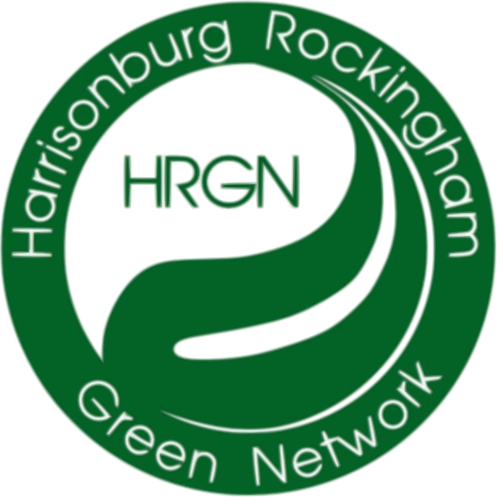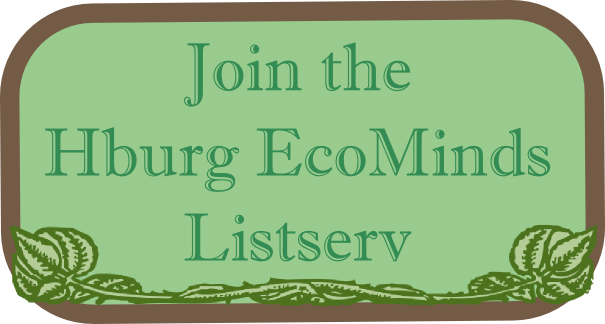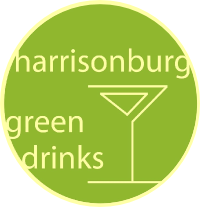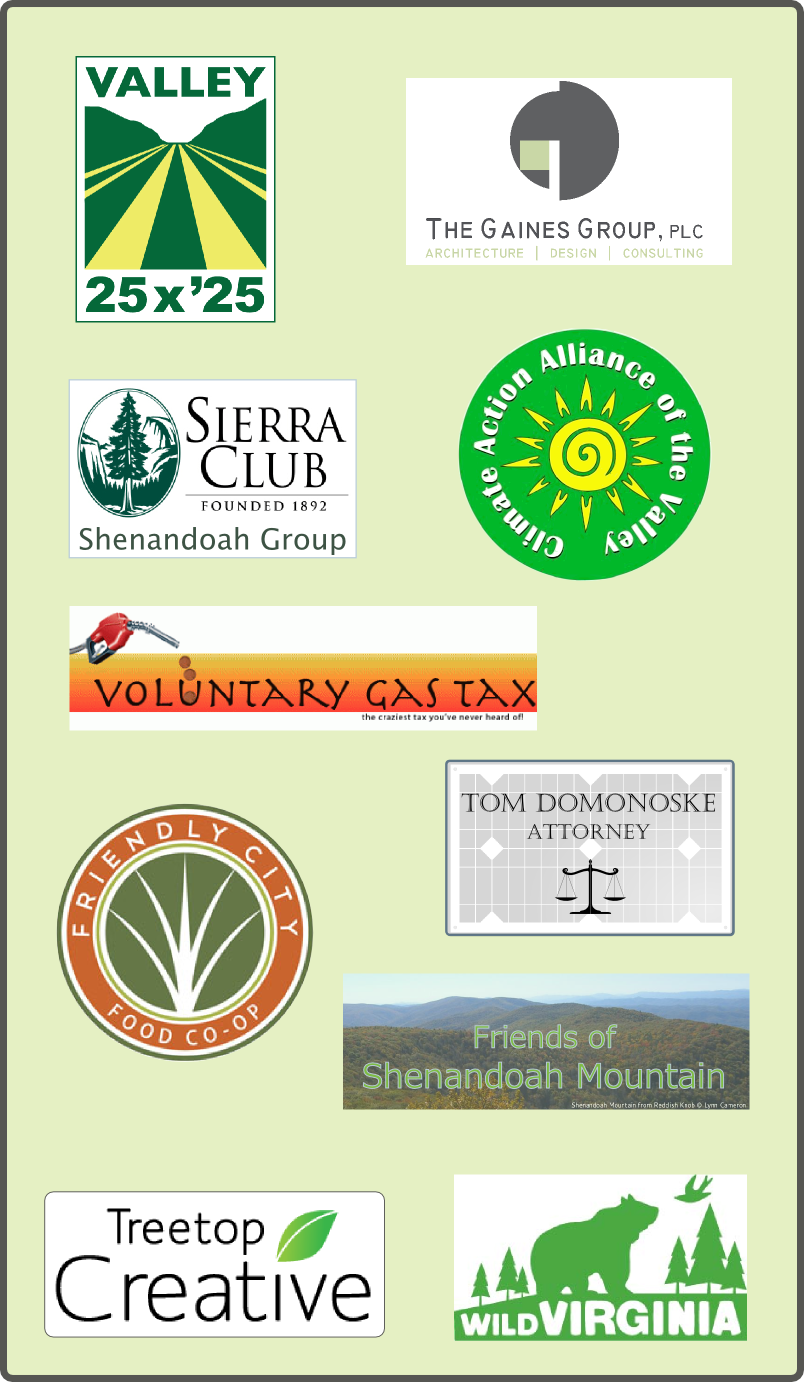HR Green Tales: Friends of Shenandoah Mountain  Friends of Shenandoah Mountain (FOSM) is a local conservation organization dedicated to permanently protecting our wild heritage on Shenandoah Mountain. FOSM is seeking designation of the area of the George Washington National Forest between Rt. 33 and Rt. 250 as a National Scenic Area with core areas designated as wilderness. As Lynn Cameron, co-chair of the organization, puts it, “This is the largest expanse of un-fragmented forest land east of the Mississippi, and we are lucky enough to have it in our backyard.” Friends of Shenandoah Mountain (FOSM) is a local conservation organization dedicated to permanently protecting our wild heritage on Shenandoah Mountain. FOSM is seeking designation of the area of the George Washington National Forest between Rt. 33 and Rt. 250 as a National Scenic Area with core areas designated as wilderness. As Lynn Cameron, co-chair of the organization, puts it, “This is the largest expanse of un-fragmented forest land east of the Mississippi, and we are lucky enough to have it in our backyard.”
FOSM is a diverse group of wilderness advocates, hikers, mountain bikers, hunters, fishers, business owners, and faith groups who appreciate the many benefits of Shenandoah Mountain and share a common goal of permanently protecting it. The FOSM group started as a collaborative effort between Virginia Wilderness Committee and Shenandoah Valley Bicycle Coalition (Thomas Jenkins of SVBC is co-chair along with Lynn.)
This collaborative effort by dedicated conservations, outdoorsy-types, and others exemplifies how many different residents of Harrisonburg and Rockingham County can come together around a single issue in order to protect our local natural resources. Lynn adds, “The Shenandoah Mountain Proposal would safeguard water quality and would protect a popular recreation area that is within easy reach of everyone who lives in the Valley. The Shenandoah Mountain area enhances our quality of life here in the Valley by providing opportunities for families to enjoy hiking, camping, and studying nature. It also supports our traditions of hunting and fishing,” as well as tourism of many sorts.
FOSM’s role in protecting Shenandoah Mountain is an important one, requiring outreach to residents on one hand and legislators on the other. Lynn explains: “Since it takes an act of Congress to designate a National Scenic Area or Wilderness Area, we are working hard to reach out to build support for our proposal. Our goal is to show Congressman Goodlatte and our senators that their constituents in the Shenandoah Valley would like to see the Shenandoah Mountain area permanently protected.” As a result of their efforts, they have endorsements from 55 organizations, 91 businesses, and 13 faith groups—an impressive track record of success even without having secured protection for the area.
Protecting nature takes more than just collaboration and outreach, though, and Lynn tells about the challenges that FOSM faces in their mission. These include “a number of misconceptions about National Scenic and Wilderness designation,” including when and how they can be used. (For example, these areas are not always closed off to hunting, fishing, camping, or other recreational use, nor are fighting fires and controlling pests categorically prohibited.).
FOSM is working hard to not only protect Shenandoah Mountain but educate people about natural conservation as well. Thanks to FOSM and their individual members, there is a positive force dedicated to protecting our natural resources. What a great example for collaborative diversity focused on the well-being of the Harrisonburg-Rockingham community!
Skirting a Superstorm…for Now The Shenandoah Valley was lucky in the recent “superstorm” (aka “Frankenstorm”) created when Hurricane Sandy collided with two other weather systems. New Jersey and New York were devastated, and many other areas were hard hit by this massive, powerful storm. The Northeast had devastating flooding, rain, and wind, and West Virginia was buried under snow. Here in the Valley, though, there was little sign that a superstorm was lumbering by just miles away.
The Sandy Superstorm is another alarming instance of severe weather, one of many disasters that seem to be happening more frequently, in more places, and with more damage. The Valley has been relatively fortunate on the whole–though last year’s earthquake certainly shook things up…a little.
Nevertheless, cimate change is real, it is happening, and its effects are being felt everywhere. Which means that Valley may not be so lucky forever.
The Harrisonburg-Rockingham Green Network takes this forecast very seriously. More importantly, HRGN members are working hard, in a variety of ways, to make our community (and so the world) more sustainable, and are focusing on some key issues:
As you can see, HRGN brings together a great deal of positive energy for the planet and for our local community! And we know that there are countless individuals out there doing their parts to reduce the human impact on planet Earth, to improve the well-being of where we live, and to make a difference in the lives of others.
HRGN is motivated by the existing sources of powerful “green” energy in Harrisonburg and Rockingham County, and seeks to cultivate this energy and help it grow. We are sort of a green “superstorm,” if you will–though our mission, unlike the Frankenstorm’s, is to be a force for sustainability, community vitality, education, and fellowship. We hope you will join us and spread the word!
Friendly City Food Co-op has some deep roots in Harrisonburg. It grew out of the Little Store, which was a small local-focused, natural foods store operated by the Little Grill in the Rose’s shopping center. After years of effort by dedicated members of the community, and some pretty impressive fundraising, Friendly City opened its doors on June 6, 2011—in what used to be the Mick or Mack, the last grocery store in downtown Harrisonburg.
Friendly City’s mission makes clear that this community-owned grocery store is more than just about shopping: their aim is to ensure that “the Shenandoah Valley has a vibrant, local economy; fair and friendly relationships; healthy, informed consumers and producers; and a healthy environment.”
Friendly City is doing just that, in many different ways. In the store itself, they source 25% of products and services from within the region and/or Commonwealth of Virginia. All unsellable foods go either to the Food Pantry at Blessed Sacrament Catholic church, or as compost to New Community Project gardens. Friendly City strives for energy efficiency as well. For example, their refrigeration equipment is all new, energy-efficient technology, thus reducing carbon outputs as well as utility costs. They did not use air conditioning at all last summer; instead, the store was cooled entirely with circulating air from coolers. Steve Cooke, the General Manager of Friendly City, explains, “Our ultimate goal is not sustainability, but rather regeneration or restoration of our earth to a better condition than we currently experience.” And, highlighting their efforts, Harrisonburg Downtown Renaissance awarded Friendly City the Design Excellence award for Overall Renovation in 2011.
Their main challenge is lack of education about the importance of buying local. Customers may look primarily at price without considering other, hidden costs. Steve says, “We must educate consumers on the true cost of food, how to prepare whole foods from scratch or semi-homemade, and keep our store fresh and professional to keep up with the Martin’s and Whole Foods of the world.
In addition to seeking more local producers, Friendly City would like to explore the possibility of using an old walk-in cooler on our loading dock as a mini-local food hub, cross-docking local produce, meats, cheeses, and other goods for area restaurants and other markets. Other possibilities down the road include possibly expanding in their current location and creating mobile food markets to go out around the county and sell local food.
Friendly City is doing lots to build a vibrant community—and hopes to do much more. Indeed, as Steve puts it, “We look forward to building strong, healthy friendships with all of the members of the Green Network and collectively restoring the Valley. Peace, love and local canola oil!”
and services from within the region and/or Commonwealth of Virginia. All unsellable foods go either to the Food Pantry at Blessed Sacrament Catholic church, or as compost to New Community Project gardens. FRIENDLY CITY strives for energy efficiency as well. For example, their refrigeration equipment is all new, energy-efficient technology, thus reducing carbon outputs as well as utility costs. They did not use air conditioning at all last summer; instead, the store was cooled entirely with circulating air from coolers. Steve Cooke, the General Manager of Friendly City, explains, “Our ultimate goal is not sustainability, but rather regeneration or restoration of our earth to a better condition than we currently experience.” And, highlighting their efforts, Harrisonburg Downtown Renaissance awarded Friendly City the Design Excellence award for Overall Renovation in 2011.
Welcome! Welcome, everyone, to Harrisonburg Rockingham Green Network’s revised website. We are a collection of sustainability-related organizations in the city of Harrisonburg and the county of Rockingham in the central Shenandoah Valley, Virginia. Our members include an array of non-profit and for-profit organizations, but we all share an interest in making our region more sustainable.
We have a new address — www.hrgn.org — but you can still access our site from our old url: www.hrgreennetwork.org. If you previously subscribed to our calendar, you should delete that old calendar and subscribe to our current calendar. If you haven’t subscribed yet, what are you waiting for? It is a great way to keep up to date on a range of sustainability-related events in Harrisonburg and Rockingham County.
|
|
Friends of Shenandoah Mountain (FOSM) is a local conservation organization dedicated to permanently protecting our wild heritage on Shenandoah Mountain. FOSM is seeking designation of the area of the George Washington National Forest between Rt. 33 and Rt. 250 as a National Scenic Area with core areas designated as wilderness. As Lynn Cameron, co-chair of the organization, puts it, “This is the largest expanse of un-fragmented forest land east of the Mississippi, and we are lucky enough to have it in our backyard.”



